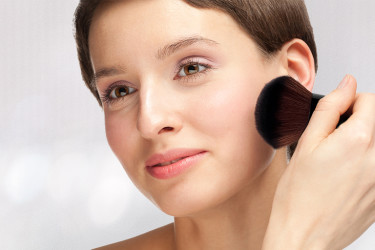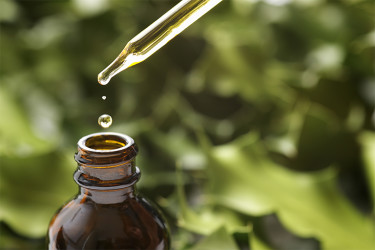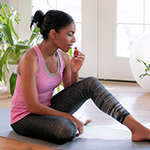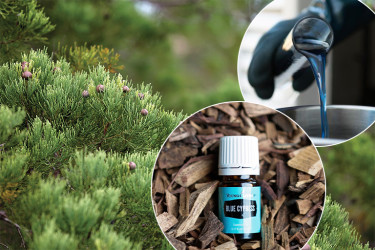About Essential Oils
What are essential oils?

|
To put it simply, essential oils are highly concentrated compounds extracted from plants to ultimately capture the purest essence of nature. Found in flowers, trees, seeds, fruit and more, essential oils harness the true power of nature and can offer a multitude of uses and benefits. |
A brief history of essential oils
Essential oils have been used for thousands of years for different purposes,
and the usage of these oils span the globe. Earliest reports date back to 4500 BC
in ancient Egypt as the Egyptians incorporated these aromatic oils in ancient healing practices.
If we look across the Indian Ocean, Vedic literature lists over 700 substances including cinnamon,
ginger,
sandalwood and
rose, all of which are still being used and loved over 3,000 years later and 4,000 miles away.
The ancient Greeks documented use of essential oils in cosmetics, ointments, and even spiritual rituals. Certain aromas were believed to have the power to chase evil spirits away,
and it’s why the ancient Greeks often buried their dead with a bottle of perfume. Fast forward to the 11th century in the years of the Crusades, European armies are credited with uncovering
the ancient practices and uses of essential oils and bringing them to western Europe. It speaks volumes how special these oils are to have stood the test of time. They’ve been used and celebrated by
civilisations throughout history!
How are essential oils made?

|
Usually, one of the first questions asked by novices is how are they made? How could the essence of a large tree possibly end up in a small glass bottle, a fraction of the size of its original source?
In the modern essential oil industry, the two main extraction methods are steam distillation and cold pressing. How to choose which method? Well, this depends on the anatomy of each individual plant.
Steam distillationThis method of extraction is the most widely used and is often the favoured method for oils derived from trees. To extract the purest essence, the botanical is placed in or above water and heated, allowing steam (carrying both oil and water-soluble components) to rise and travel along a tube through a cooling system, where it’s returned to a liquid state. Once condensed, the oil can be found collected at the top where it’s then separated from the water. Sounds easy? Here’s the kicker: the process needs to happen at the perfect temperature and pressure to avoid altering the oil’s properties or aroma. Cold pressingThe process of cold pressing on the other hand, relies on force and does not involve external heat. It’s one of the oldest methods of essential oil extraction, and it works by first grinding the botanicals to withdraw the fatty parts of the plants, leaving behind a pulp. Historically, these were pressed by hand but these days, the process is fully mechanised. To separate the essential oil from the pulp, the cold press machine goes through processes of puncturing and spinning, helping to release essential oils in their purest form. Cold pressing is the preferred method for citrus fruits because the intense heat used in steam distillation can alter molecules and degrade them, compromising the oil’s potency and thus weakening the benefits. |
How to use essential oils

|
Now that we understand the history and production of essential oils, let’s focus our attention on the many uses of essential oils. Evoking memories through scentScience, as well as our own human experience, teaches us that scents can trigger different emotions and memories. How does this happen? Scents can bypass the thalamus and go straight to the olfactory bulb of the brain, which is the region associated with emotion and memory. Each essential oil has a unique scent that can inspire different memories and feelings. Refreshing scents like rosemary and citrus essential oils can evoke bright and uplifting feelings whilst lavander offers a calming aroma. Incorporate moments of self-care into your life by using essential oils and essential oil blends for soothing baths, massages, inhalation, or topical application. Prioritising physical wellnessLife is busy, we get it. That’s where essential oils and essential oil-infused products come in, providing targeted solutions to support you feeling your best. Passionate about fitness? Gently breathe in uplifting scents such as spearmint and peppermint essential oil before your workout, or add drops to your pulse points to keep you motivated throughout. These oils can even have post-workout benefits when combined with carrier oil and massaged into the body. Reach for multivitamins and food supplements made from pure essential oils and other naturally derived ingredients as an excellent source of nutrition to support your overall health and wellness goals. Cleaning the homeWe don’t want to fill our bodies with harsh chemicals and toxins, so why should we clean our homes with them? Essential oils are a natural way to deodorise your home. Look for products with naturally derived ingredients to keep your home smelling clean and fresh. Enhancing natural beautyLet your natural beauty shine through without harsh ingredients and synthetic fragrances. Enjoy the beautiful benefits of essential oil-infused, naturally-derived, cruelty-free cosmetic and personal care products. |
Which essential oils are best?

|
There are a few ways this question can be answered. In terms of which aromas are best, that totally depends on the goals of each individual user. For those wanting to focus, combine cedarwood, frankincense, and melissa to envelop your senses to get you energised and focused. Contrastingly, blends of lime, vanilla, copaiba, and lavender are considered the ultimate for calm and relaxation. Unsure where to start? Look for starter kits that offer a comprehensive introduction to the power of essential oils. However, when choosing the right oils, it’s important to look for quality and purity… The importance of purityFor an essential oil to be considered pure, it needs to be carefully extracted from a raw botanical source without any other chemicals or additives. Sadly, essential oils can be tampered with, a common example of this being when sellers add synthetics to bulk out the volume and therefore maximise profits. The consequence of using impure essential oils is that they will not offer the same benefits as promised by the purest, high-quality essential oils. How to find the best essential oils
Finding a trustworthy company doesn’t have to be daunting. Look for reputable companies that offer statements on their commitments to purity and standards.
Here at Young Living, we are proudly leading the way to ensure our standards go far beyond the standard with our Seed to Seal® commitment, offering our community the most authentic essential oil experience available.
You should be able to have total trust that your essential oils are the highest level of quality, purity, and safety. Don’t settle for anything less. |
How to Use Essential Oils
Contact Us
Young Living Europe B.V.
Peizerweg 97
9727 AJ Groningen
Netherlands
Young Living Europe Ltd Head Office
+44 (0) 20 3935 9000
Copyright © 2021 Young Living Essential Oils. All rights reserved. | Privacy Policy
CLICK HERE : See what we are doing in response to the COVID-19 pandemic
